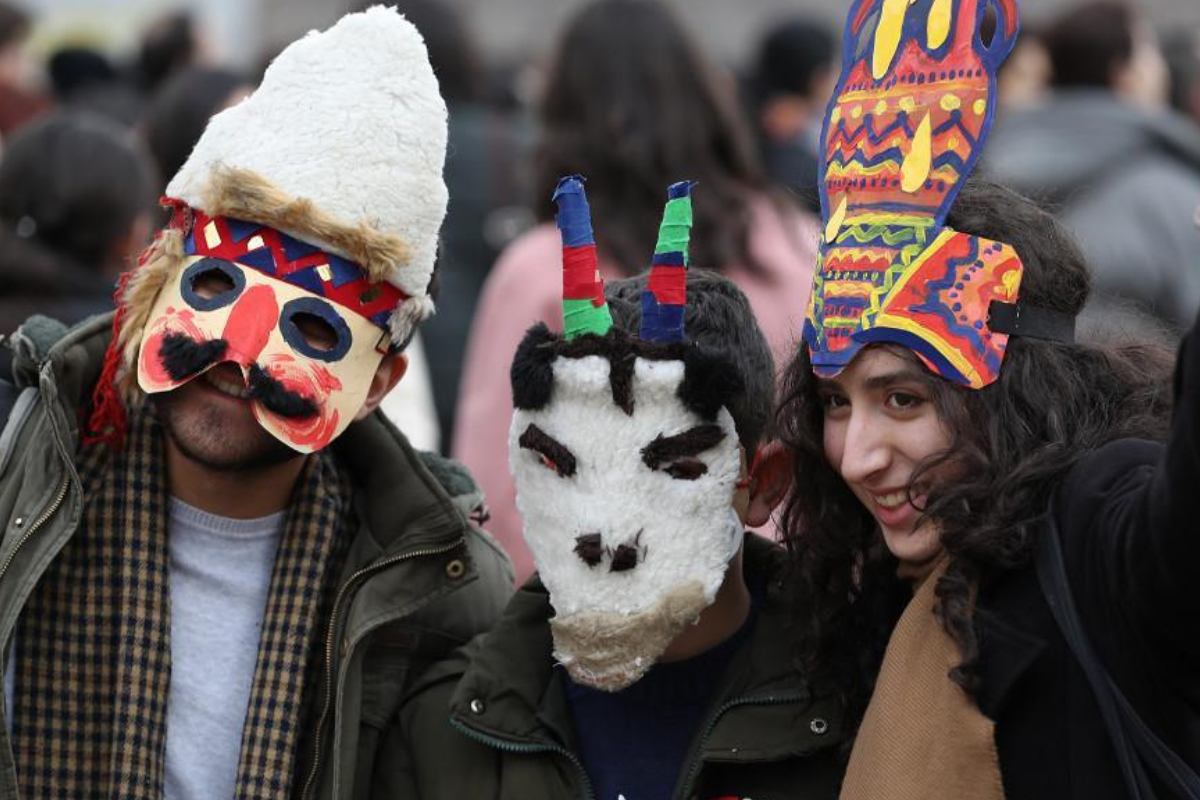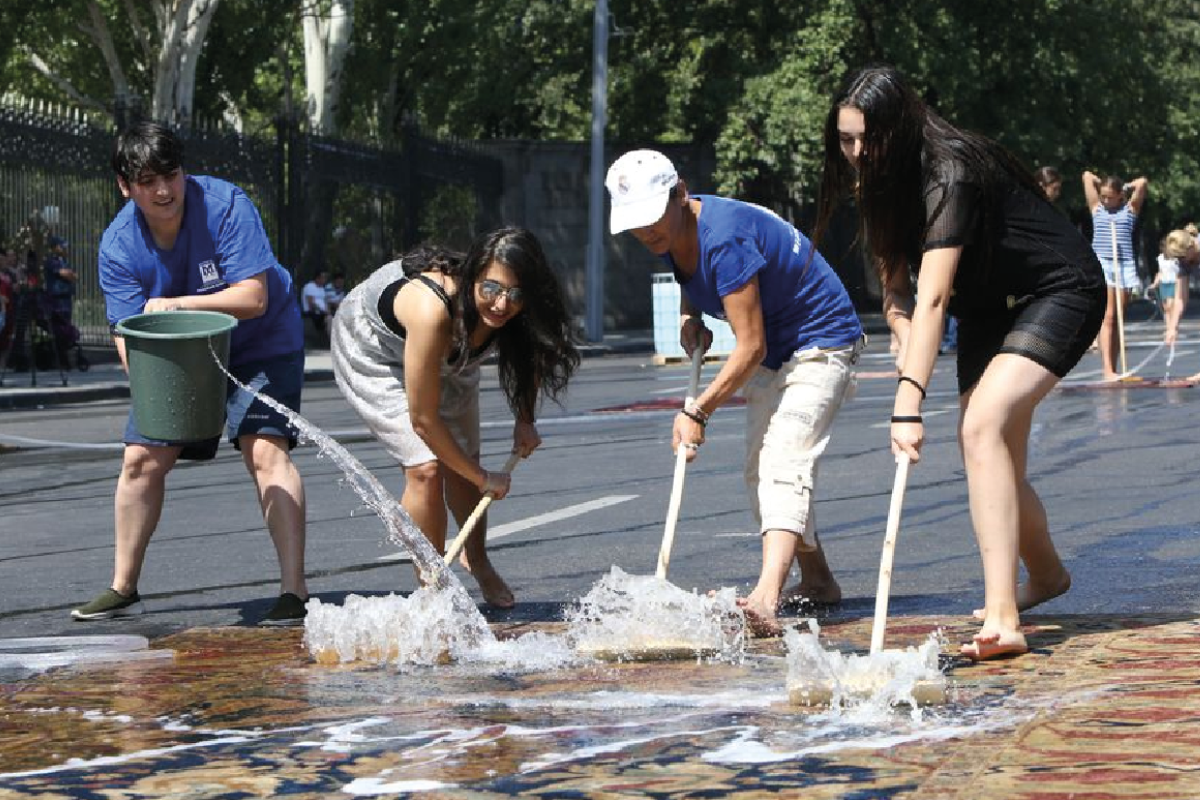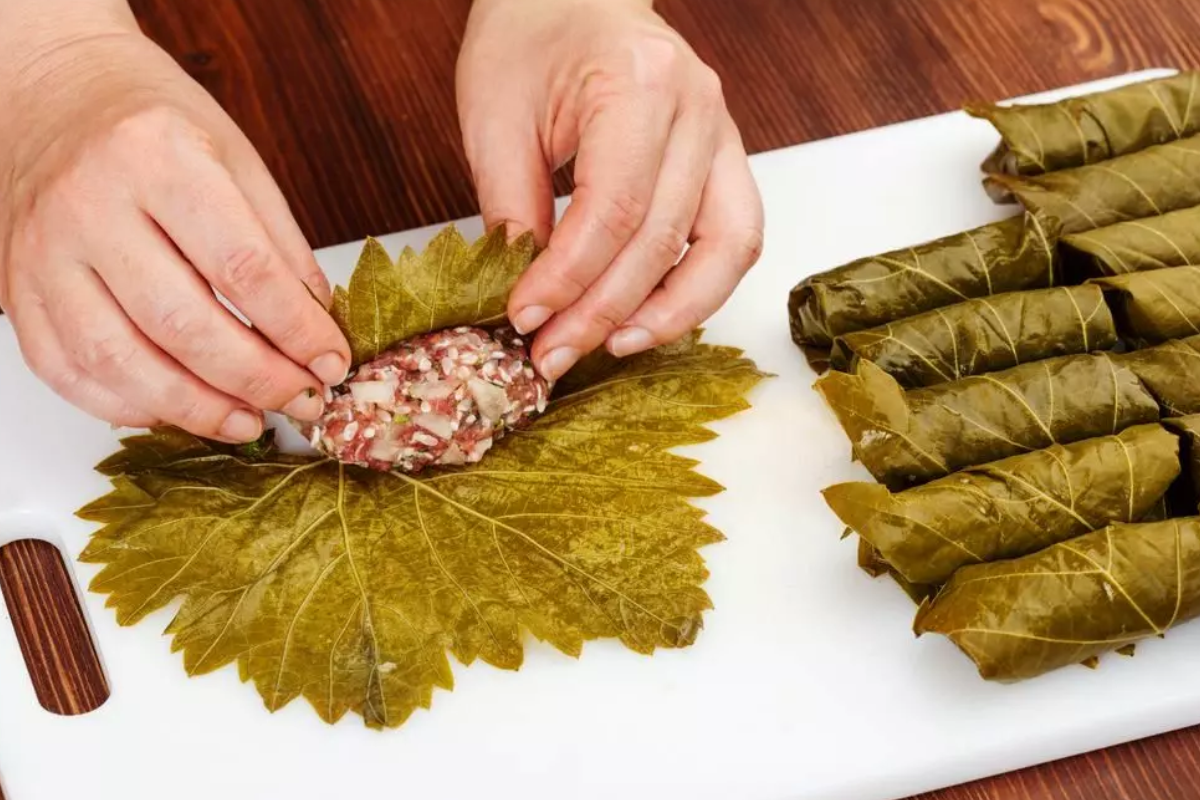Publications
19.05.2025
2 min
Tips
Festivals of Faith, Food, and Folklore: Armenia’s Colorful Celebrations
-webp(85)-o(png).webp?token=ad1e27e03647b82cf14b528f21cf996d)
An Introduction into Armenia’s Favorite Festivals
Armenians love a celebration and there are probably many Armenian traditions and festivals that you have never even heard of. Being a land steeped in ancient traditions - both Christian, and with Pagan origins - Armenia’s festivals offer an insight into the history of the nation.
Prior to adopting Christianity in 301 AD, many Armenian festivals had Pagan roots, often celebrating the cycle of nature, the seasons and fertility. These festivals would involve dancing, feasting and symbolic rituals to ensure prosperity. Following the adoption of Christianity, these festivals were Christianized as opposed to eliminated, ensuring Armenia’s centuries-long traditions were preserved.
Often accompanied by food, music and dance, Armenian festivals preserve Armenian culture and pass down traditions to the next generation. Keep reading to learn about some of Armenia’s most loved festivals that reflect the identity and spirit of the country.
Poon Paregentan

We all know about Lent, but did you know about the festival that precedes it? Poon Paregentan (Բուն Բարեկենդան) means “the original festival” and takes place on the Sunday before the Great Lent, when Armenian Christians fast in a 40-day period of reflection before Easter. It is a celebration and time to feast before the fasting of lent begins.
Poon Paregentan is thought to have Pagan origins, as a celebration marking the beginning of spring, a time of joy, abundance and community gathering. The Armenian church interprets the festival as a time to celebrate God’s gifts and emphasize spiritual readiness before beginning the Lenten period. That said, Poon Paregentan still carries much of its folk elements with masquerades, feasts, parties and dancing.
There are many ways to celebrate Poon Paregentan. You can host a festive meal with traditional Armenian dishes. As it is the day before lent, it is a chance to feast on meat, dairy and alcohol. You can also dress up in costumes and masks, or even join a masquerade, you may even want to organise a costume contest for your kids. Poon Paregentan has spiritual significance too, so you could attend a church service or light a candle to give thanks for life’s blessings.
Sheep Shearing Festival
The annual Sheep Shearing Festival has been taking place in Armenia since 2014. Spearheaded by both the Tatev Revival Foundation and the Homeland Development Initiative Foundation, the aim is to support local traditions and promote tourism in the Syunik region in the south of Armenia, which is famous for sheep farming. That said, the Sheep Shearing Festival does have historical origins too, being known as “Gndak Yerki Or” or “Day of the Wool Song”, a celebration of shepherding communities across Armenia.
The Sheep Shearing Festival takes place in late spring or early summer, when sheep are sheared to gather wool and be prepared for the upcoming summer months. This wool is later used for carpets, clothing and blankets. The festival is a time for community, but it also symbolizes the cycle of nature and renewal.
The festival hosts participants from across Armenia competing in sheep shearing competitions and much, much more. The sheep shearing takes place using traditional Armenian tools to showcase the history and longevity of the age-old craft.
But the festival is not just for sheep shearers, it also showcases regional crafts and foods, as well as hosting music and dancing. There are also masterclasses and tasting opportunities of local delicacies, all supporting local artisans and farmers. It is recommended to look for celebrations in Halidzor or Tatev in the Syunik province of Armenia, where pastoral traditions are still alive. Here you’ll see live sheep shearing, traditional wool-spinning, craft markets and folk dances.
Rug Washing Day

During the early summer time, there is a tradition in Armenia to wash carpets, something which is particularly observed in rural communities. The symbolic tradition celebrates the care, preservation and cultural significance of Armenian rugs.
Though there is no official date, in recent times museums and cultural institutions like Yerevan’s Megerian Carpets have held events to allow others to join in with the carpet washing ritual.
Traditionally, families in villages come together outdoors to clean their carpets, often taking their rugs to rivers and streams. The carpets are then laid out flat, soaked in cold water, washed with soap and then rinsed through. Once the carpets are cleaned, they are hung out in the sun to dry.
The act of carpet washing is not just about cleanliness but also has social and cultural significance. The ritual brings together neighbours to help each other and eat together. It is also an act of preserving heritage, carefully washing rugs that are covered in rich symbolism.
You can also take part in this ancient tradition by choosing a sunny day to gently wash your own rug outside. By doing this, you’ll be reflecting the historical act of purity, spiritual renewal and respect for your heritage. You can invite family or friends to help, and share stories while rug washing. This is also an opportunity for you to discuss the symbols on the Armenian rugs, and compare and contrast regional patterns and styles.
Barbecue Festival
What Armenian doesn’t love khorovats? The Armenian tradition of cooking meat and vegetables on skewers over hot coals is celebrated annually at the Pan-Armenian Khorovats Festival in Akhtala, in the Lori region of Armenia. In 2017, the festival organizers declared Akthala to be the World Barbecue Capital. Each August cooks from restaurants and organizations across Armenia and abroad compete to make the best barbecue.
Throughout the festival, you’ll be able to try every kind of Armenian barbecue including beef, pork, fish, and vegetables. Prizes are available for the best look, the best concept, and most importantly, the best tasting khorovats.
In addition to food, the festival also presents traditional Armenian music, songs and dances. It is a celebration of hospitality, heritage and togetherness. There is even a “Khorovats Dance” which you’ll be able to experience while visiting the festival.
The festival takes place on the third Sunday of August every year in Akhtala, which is a picturesque drive from Yerevan. It is also worthwhile visiting the remarkable frescoes at Akhtala Monastery during your trip, as it is near the festival location.
Dolma Festival

In addition to its celebration of khorovats, Armenia also has a dolma festival. The annual festival has been taking place each May since 2011, moving to a different venue each year.
Dolma is a dish consisting of grape leaves or other vegetables stuffed with a savory filling of ground meat and rice. Preparing the dolma is often a family affair with multiple generations coming together to wrap and stuff each piece, as it can be a very time consuming activity. The process of stuffing and wrapping grape leaves is an act of both hospitality and nourishment, filling the home with warmth, care and love.
The festival was founded by Sedrak Mamulyan, head of the Development and Preservation of Armenian Culinary Traditions, with the aim of celebrating the beloved Armenian dolma. It was also established to refute any claims that dolma does not have Armenian origins.
The Dolma Festival typically features 60 different varieties of dolma, as well as a competition for the best tasting grape leaves, so there’s something to suit the tastes of every member of your family.
Whether you call it tolma or dolma, there is something for everyone, as the festival also gives visitors the chance to listen and dance to traditional folk music, as well as to celebrate Armenian culture.
-
News
-webp(85)-o(png).webp?token=d92fee26fe94722600393448f07de612) 25.02.2026Arriving in Armenia: How to Exchange Money at Zvartnots Airport Without Overpaying
25.02.2026Arriving in Armenia: How to Exchange Money at Zvartnots Airport Without Overpaying

-webp(85)-o(png).webp?token=11f270792363a77b4704850567ac2af1)
-webp(85)-o(png).webp?token=339120d84b4fffad516cdf16da05e78f)
-webp(85)-o(png).webp?token=0f42b0b6495e56f8d4c718a8194ddb85)